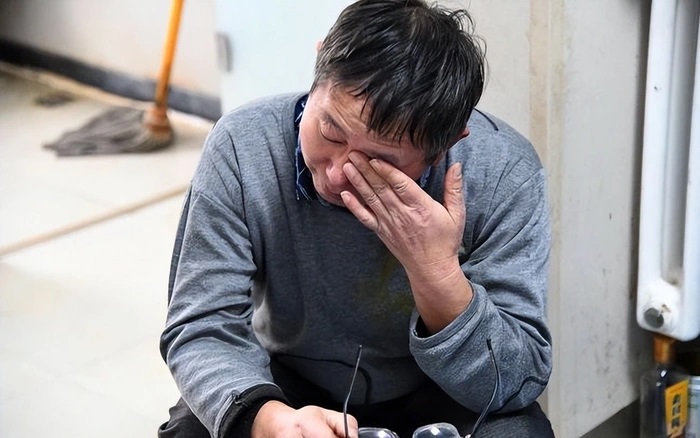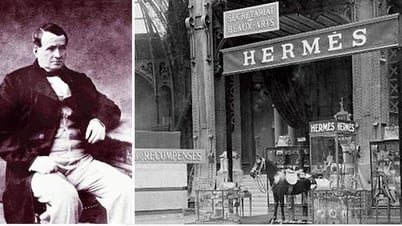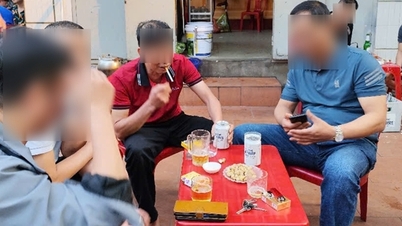This old man's four children filed a lawsuit to reclaim their father's property but were unsuccessful.
After moving to the city to start a career, Mr. Cao (Jiangsu, China) married a woman from the same hometown.
After 15 years of living together, the couple had 4 children. Until 1995, his family broke up.
His wife and children moved to another residence and cut off all contact.
He lived alone in the old house and never remarried.
At the age of 78, Mr. Cao suffered a stroke after slipping and falling. Initially, he had the support of his siblings.
However, because everyone's circumstances were not very good, he was forced to rely on neighbors near and far.
Seeing that he was keeping everyone busy, Mr. Cao decided to sign an agreement with the neighborhood committee called “inheritance and support” under the witness of his siblings.
Accordingly, the neighborhood committee will be responsible for taking care of Mr. Cao, providing him with monthly living expenses, visiting him when he is sick, and taking care of his funeral. In return, after his death, Mr. Cao's assets will belong to the neighborhood committee.

Illustration photo
With the agreement signed, Mr. Cao received dedicated care from the members of the neighborhood committee. In his sober moments, he even admitted that this was the best decision of his life.
After 5 years of being cared for by everyone, until the age of 83, Mr. Cao passed away. The neighborhood committee paid 60,000 yuan to take care of his funeral. As agreed upon, the house where Mr. Cao used to live belonged to the neighborhood committee.
At that time, this house was located in an area that needed to be cleared to make way for the road. According to regulations, Mr. Cao's house would receive 2 million yuan (nearly 7 billion VND) in compensation. Since the house's ownership belonged to the neighborhood committee, this money would also belong to the people who took care of the old man.
At the same time, Mr. Cao’s four children suddenly appeared and claimed the inheritance of 2 million yuan. They claimed that the old man did not leave any will. However, according to the law of wills, in the first line of inheritance, the house still belonged to the four of them.
In response to this group of people, the neighborhood committee presented the previously signed agreement with Mr. Cao. The representative also affirmed that the four children had never taken care of the old man, so they could not claim inheritance rights here.
However, Mr. Cao's children said they had lost contact with their father for a long time. So they were completely unaware of his illness and were not able to take care of him in time. It was only when the old man passed away and some relatives informed him that his children understood the situation. But it was too late.
Despite their arguments, the neighborhood committee refused to return the property to Mr. Cao’s children. Realizing that negotiations were not going to reach an agreement, the group decided to ask the local court to decide.
After reviewing the case, the Court of First Instance held that the “inheritance and maintenance” agreement between Mr. Cao and the neighborhood committee was considered a will. The neighborhood committee had fulfilled its obligations to care for and bury the old man. Therefore, all of the old man’s assets would belong to the committee. His children would not receive any assets.
This verdict, of course, did not satisfy Mr. Cao's children. They immediately appealed to a higher court to reclaim their family's property. However, the appellate court held that the first instance judgment was clear and upheld the original judgment. In the end, the entire 2 million yuan was awarded to the neighborhood committee.

The old man's children were not expecting the court's result. Illustrative photo
According to QQ, after this incident was shared on Chinese social media, many people supported the court's decision. When they learned that the money left by Mr. Cao was used by the neighborhood committee to take care of lonely elderly people in the area, everyone agreed with this approach even more.
Dinh Anh
Source: https://giadinh.suckhoedoisong.vn/cu-ong-vua-qua-doi-4-nguoi-con-tim-ve-doi-quyen-thua-ke-7-ty-dong-toa-an-khang-dinh-tai-san-da-thuoc-ve-nguoi-khac-172241214122830616.htm


![[Photo] Hanoi morning of October 1: Prolonged flooding, people wade to work](https://vphoto.vietnam.vn/thumb/1200x675/vietnam/resource/IMAGE/2025/10/1/189be28938e3493fa26b2938efa2059e)

![[Photo] Keep your warehouse safe in all situations](https://vphoto.vietnam.vn/thumb/1200x675/vietnam/resource/IMAGE/2025/10/1/3eb4eceafe68497989865e7faa4e4d0e)


![[Photo] President of the Cuban National Assembly visits President Ho Chi Minh's Mausoleum](https://vphoto.vietnam.vn/thumb/1200x675/vietnam/resource/IMAGE/2025/10/1/39f1142310fc4dae9e3de4fcc9ac2ed0)



























































































Comment (0)